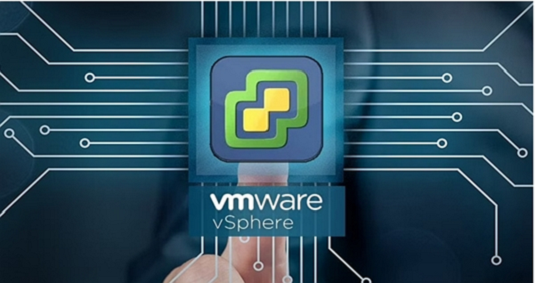VMware Solutions: Complete Guide for Enterprise Virtualization and Cloud Computing
VMware solutions have revolutionized how businesses manage their IT infrastructure. These powerful virtualization technologies help organizations reduce costs while improving efficiency. Moreover, VMware platforms enable seamless cloud migration and hybrid cloud deployments across various industries.
What Are VMware Solutions?
VMware solutions represent comprehensive virtualization software that creates virtual machines on physical hardware. Furthermore, these platforms allow multiple operating systems to run simultaneously on single servers. Consequently, businesses maximize hardware utilization while reducing physical server requirements.
The technology separates software from underlying hardware infrastructure. Therefore, organizations gain flexibility in deploying applications and managing workloads. Additionally, VMware solutions provide centralized management tools for streamlined IT operations.
Core VMware Product Portfolio
vSphere Virtualization Platform
vSphere serves as VMware’s flagship virtualization platform for data centers. This solution enables server consolidation and improved resource allocation. Similarly, vSphere provides high availability features that minimize downtime risks.
The platform includes vCenter Server for centralized management capabilities. Additionally, vMotion technology allows live migration of virtual machines without service interruption. Therefore, businesses maintain continuous operations during maintenance activities.
vSAN Hyper-Converged Infrastructure
vSAN integrates compute, storage, and networking into unified systems. This hyper-converged approach simplifies data center architecture significantly. Moreover, vSAN reduces hardware costs while improving scalability options.
The solution provides software-defined storage across server clusters. Consequently, organizations eliminate traditional storage area networks (SANs). Furthermore, vSAN offers built-in data protection and disaster recovery capabilities.
NSX Network Virtualization
NSX creates software-defined networking environments for enhanced security. This solution enables micro-segmentation across virtual and physical networks. Additionally, NSX provides distributed firewall capabilities throughout the infrastructure.
Network administrators gain centralized control over security policies. Therefore, organizations implement zero-trust security models more effectively. Furthermore, NSX supports automated network provisioning for faster deployments.
Cloud Computing Solutions
VMware Cloud Foundation
Cloud Foundation delivers complete hybrid cloud infrastructure in integrated packages. This solution combines compute, storage, networking, and management components. Moreover, it supports both private and public cloud deployments seamlessly.
The platform provides consistent operations across different cloud environments. Additionally, Cloud Foundation enables workload portability between on-premises and cloud infrastructures. Therefore, businesses avoid vendor lock-in while maintaining flexibility.
VMware Cloud on AWS
This service brings VMware environments directly to Amazon Web Services. Organizations can extend on-premises data centers to AWS cloud infrastructure. Furthermore, the solution maintains familiar VMware tools and processes.
Migration becomes simpler without application re-architecting requirements. Additionally, businesses access AWS native services alongside VMware capabilities. Consequently, hybrid cloud adoption accelerates across enterprise environments.
Key Business Benefits
Cost Reduction Advantages
VMware solutions significantly reduce hardware and operational expenses. Server consolidation eliminates unnecessary physical infrastructure investments. Moreover, centralized management reduces administrative overhead costs substantially.
Energy consumption decreases through improved hardware utilization rates. Additionally, reduced cooling and power requirements lower ongoing operational expenses. Therefore, total cost of ownership improves across multi-year periods.
Enhanced Security Features
Virtualization provides inherent security benefits through workload isolation. Each virtual machine operates independently without affecting others. Furthermore, snapshot capabilities enable quick recovery from security incidents.
NSX adds advanced security controls throughout the network infrastructure. Additionally, micro-segmentation limits potential attack surfaces significantly. Consequently, organizations achieve better security postures with fewer vulnerabilities.
Improved Disaster Recovery
VMware solutions simplify disaster recovery planning and implementation. Virtual machine portability enables rapid recovery at alternate sites. Moreover, automated failover capabilities minimize recovery time objectives.
Site Recovery Manager orchestrates disaster recovery processes automatically. Additionally, regular testing ensures recovery procedures work effectively. Therefore, business continuity improves while reducing recovery complexity.
Implementation Best Practices
Planning and Assessment
Successful VMware deployments require thorough infrastructure assessments beforehand. Organizations should analyze current workloads and performance requirements carefully. Additionally, capacity planning ensures adequate resources for virtual environments.
Network bandwidth and storage performance need careful evaluation. Furthermore, backup and recovery strategies require updating for virtualized environments. Therefore, comprehensive planning prevents implementation challenges later.
Migration Strategies
Phased migration approaches reduce risks during VMware implementations. Start with non-critical workloads to gain experience gradually. Moreover, testing validates performance and compatibility before production migrations.
Application dependencies require mapping before virtualization begins. Additionally, staff training ensures successful adoption of new technologies. Consequently, organized migration approaches improve success rates significantly.
Future of VMware Solutions
VMware continues innovating with cloud-native technologies and containerization support. Kubernetes integration enables modern application development approaches. Furthermore, edge computing capabilities expand VMware’s reach beyond traditional data centers.
Artificial intelligence and machine learning enhance automated management capabilities. Additionally, multi-cloud strategies become more sophisticated with improved orchestration tools. Therefore, VMware solutions evolve to meet changing business requirements effectively.
VMware solutions provide comprehensive virtualization and cloud computing capabilities for modern enterprises. These technologies reduce costs while improving operational efficiency and security. Moreover, VMware’s extensive ecosystem supports diverse business requirements across various industries successfully.


